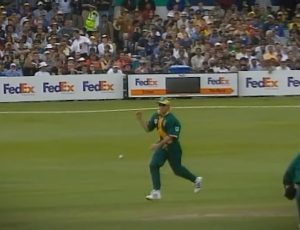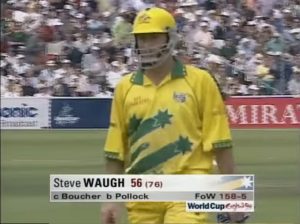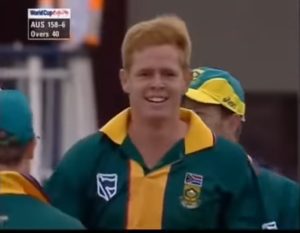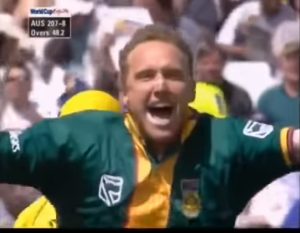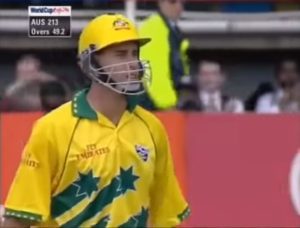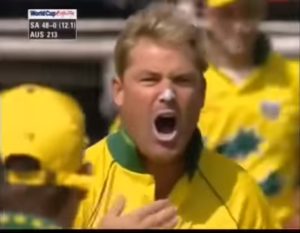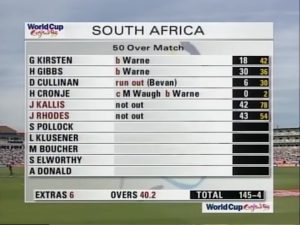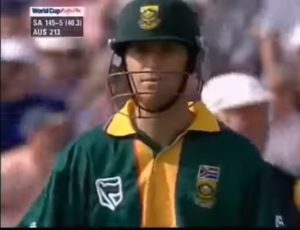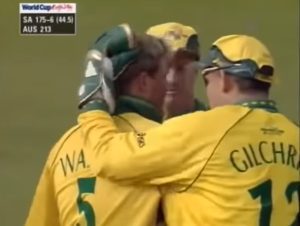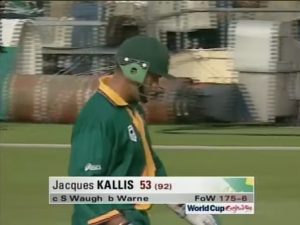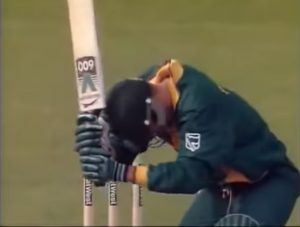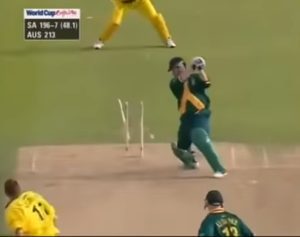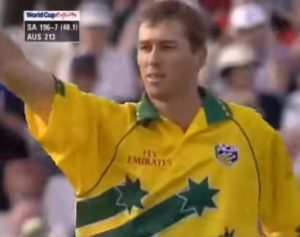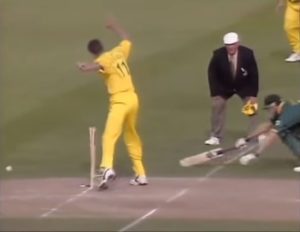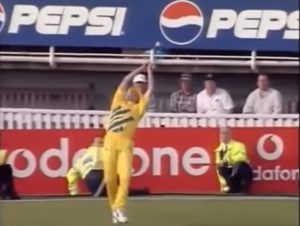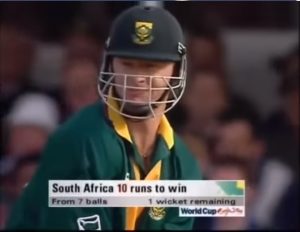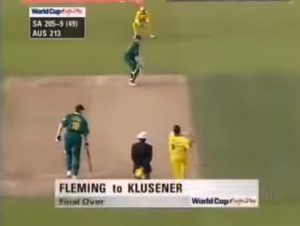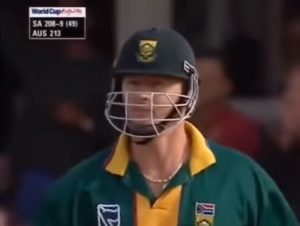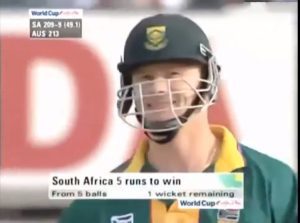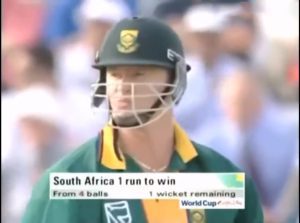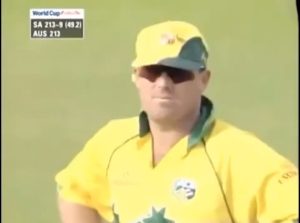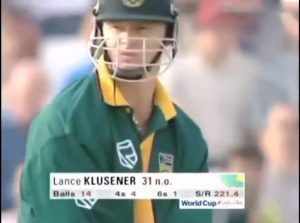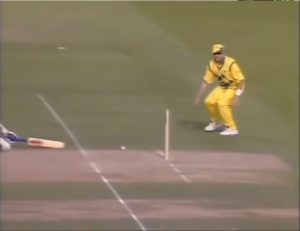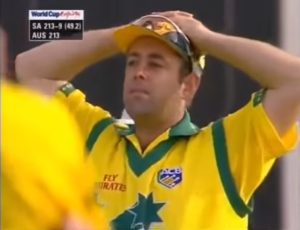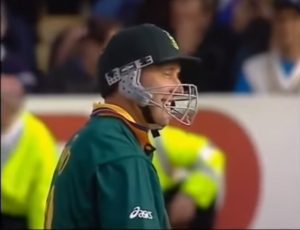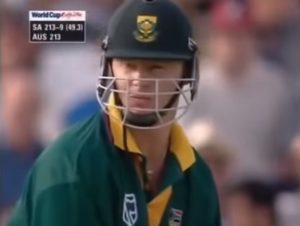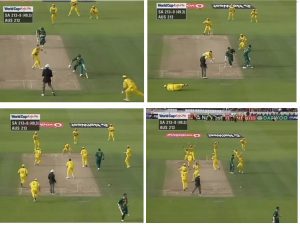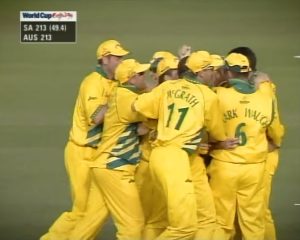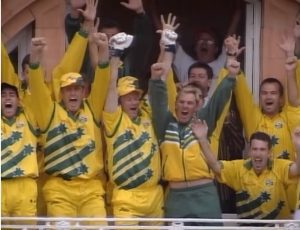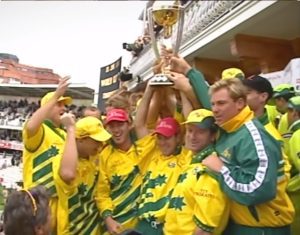1999 World Cup Australia Vs South Africa Semi-Final: The Greatest ODI Ever Played
Ever since the advent of the limited overs format in Cricket in the early 1970s, the age-old game with white uniforms, a red ball and 5-days of play evolved into something more exciting, energetic, and action-packed. There are countless ODIs already played on the international level but there’s one match that stands out in the plethora of limited overs format – The 1999 Cricket World Cup Semi-Final.
Australia took on South Africa for a berth in the 1999 Cricket World Cup finals on the 17th of June, 1999. Looking back at this epic clash now, it was a match between two of the best teams in the history of ODI cricket with several legends of the game featuring in it.
Let’s have a look at this encounter and what made it probably the best-ever one-day game.
Cricket World Cup 1999: The World Cup Of Legends
The 1999 World Cup organised by the ICC was held in England with 12 participating teams divided into two groups of six teams teach. Some of the biggest names and legends of the game today were playing this World Cup. It was a tournament where players like Sachin Tendulkar, Ganguly, Dravid, Kallis, Jonty Rhodes, Lance Klusener, Allan Donald, Shaun Pollock, Steve Waugh, Ricky Ponting, Gilchrist, Warne, Mc Grath, Jayasuriya, Muralitharan, Aravinda De Silva, Wasim Akram, Waqar Younis, Saeed Anwar, Saqlain Mushtaq and Brian Lara had battled it out for their respective teams.
Group Stages of the World Cup
Super Six
The Aus Vs SA Super Six Encounter & The Dropped Catch
South Africa scored a competitive 271/7 with Herschelle Gibbs scoring a century. Australians were struggling in the chase at one time at 48-3 when Ponting and Steve Waugh came to the rescue. Captain Steve Waugh was dropped at 57 by Gibbs at short mid-wicket as Gibbs tried to throw the ball up into the air in celebration as it slipped through his fingers. Waugh reportedly said to Gibbs “You’ve just dropped the World Cup!” However, Waugh later denied this and told that he said to Gibbs, “Look, do you realize you’ve just cost your team the game.” Steve Waugh went on to score 120 as Australia beat South Africa by 5 wickets with two balls to spare.
Semi-Final 2: Australia vs South Africa
Australian Innings
Allan Donald and Shaun Pollock tore in the Australian batting attack as they were reduced for 68-4. Steve Waugh came to the rescue again scoring 56 before Pollock and Donald came into the action. While wickets kept falling on the other end, Michael Bevan stayed till the very last over scoring a solid 65. As many as four batsmen were out for a duck including Mark Waugh. Shaun Pollock picked up 5 wickets and Donald sent 4 Australian batsmen to the pavilion.
South Africa had restricted Australia to 213 in this crucial encounter.
South African Innings
South Africa entered the final over at 205/9 with Klusener at the crease, Allan Donald at the other end and 9 runs needed for victory.
The bowler was Damien Fleming who had also bowled the last over against West Indies in the 1996 World Cup Semi-final. Needing 6 runs off the last 5 balls, Fleming had bowled Courtney Walsh to seal Australia’s place in the finals. This time it was against Klusener who had the reputation of hitting the best bowlers out of the ground.
Commentator Mike Proctor remarked, “that could be the difference between a World Cup final berth or nothing.”
Commentator Bill Lawry remarked, “There it is, this will be out surely – oh it’s out, it’s gonna be run out…oh, that is South Africa out – Donald did not run, I cannot believe it. Australia goes into the World Cup Final – ridiculous running with two balls to go. Donald did not go, Klusener came – what a disappointing end for South Africa. What a match for our viewers right around the world.”
Aftermath & Reactions
Australia & The World Cup
South Africa & The Chokers Tag
People & Media
Wisden Cricketers’ Almanack, a cricket reference remarked: “This was not merely the match of the tournament: it must have been the best one-day international of the 1,483 so far played. The essence of the one-day game is a close finish, and this was by far the most significant to finish in the closest way of all – with both teams all out for the same score. But it was a compressed epic all the way through, and it ended in a savage twist.”


